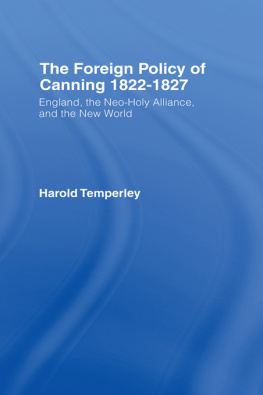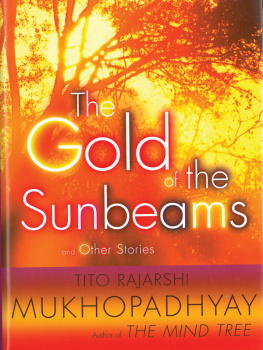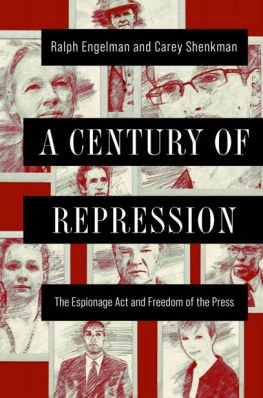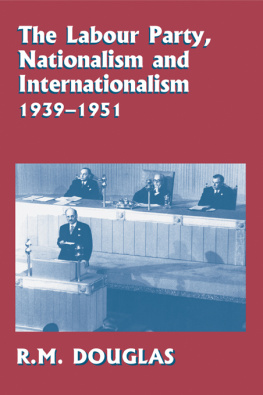Batović Ante - The Croatian spring: nationalism, repression and foreign policy under Tito
Here you can read online Batović Ante - The Croatian spring: nationalism, repression and foreign policy under Tito full text of the book (entire story) in english for free. Download pdf and epub, get meaning, cover and reviews about this ebook. City: Croatia;Yugoslavia, year: 2017, publisher: I. B. Tauris & Company, Limited, genre: Politics. Description of the work, (preface) as well as reviews are available. Best literature library LitArk.com created for fans of good reading and offers a wide selection of genres:
Romance novel
Science fiction
Adventure
Detective
Science
History
Home and family
Prose
Art
Politics
Computer
Non-fiction
Religion
Business
Children
Humor
Choose a favorite category and find really read worthwhile books. Enjoy immersion in the world of imagination, feel the emotions of the characters or learn something new for yourself, make an fascinating discovery.

- Book:The Croatian spring: nationalism, repression and foreign policy under Tito
- Author:
- Publisher:I. B. Tauris & Company, Limited
- Genre:
- Year:2017
- City:Croatia;Yugoslavia
- Rating:4 / 5
- Favourites:Add to favourites
- Your mark:
- 80
- 1
- 2
- 3
- 4
- 5
The Croatian spring: nationalism, repression and foreign policy under Tito: summary, description and annotation
We offer to read an annotation, description, summary or preface (depends on what the author of the book "The Croatian spring: nationalism, repression and foreign policy under Tito" wrote himself). If you haven't found the necessary information about the book — write in the comments, we will try to find it.
Batović Ante: author's other books
Who wrote The Croatian spring: nationalism, repression and foreign policy under Tito? Find out the surname, the name of the author of the book and a list of all author's works by series.
The Croatian spring: nationalism, repression and foreign policy under Tito — read online for free the complete book (whole text) full work
Below is the text of the book, divided by pages. System saving the place of the last page read, allows you to conveniently read the book "The Croatian spring: nationalism, repression and foreign policy under Tito" online for free, without having to search again every time where you left off. Put a bookmark, and you can go to the page where you finished reading at any time.
Font size:
Interval:
Bookmark:
Ante Batovi earned his doctorate from the University of Zadar. He specialises in international history of the Cold War and works as a security analyst in London.
Benjamin Bilski is an author and editor. He is the executive director of the Pericles Foundation, which specialises in developing and publishing new research for a general audience.
Ante Batovis book, based on extensive research in American, British, NATO, Croatian and Serbian archives, provides not just an authoritative account of an important, though relatively little-known, episode in Cold War history. It shines a spotlight more generally on how the West viewed Yugoslavia as a pivotal state in the Cold War.
Robin Harris, Historian

To Ana and Martina
Published in 2017 by
I.B.Tauris & Co. Ltd
London New York
www.ibtauris.com
Copyright 2017 Ante Batovi and the Pericles Foundation
The right of Ante Batovi to be identified as the author of this work has been asserted by the author in accordance with the Copyright, Designs and Patents Act 1988.
All rights reserved. Except for brief quotations in a review, this book, or any part thereof, may not be reproduced, stored in or introduced into a retrieval system, or transmitted, in any form or by any means, electronic, mechanical, photocopying, recording or otherwise, without the prior written permission of the publisher.
Every attempt has been made to gain permission for the use of the images in this book. Any omissions will be rectified in future editions.
References to websites were correct at the time of writing.
International Library of Twentieth Century History 99
ISBN: 978 1 78453 927 6
eISBN: 978 1 78672 184 6
ePDF: 978 1 78673 184 5
A full CIP record for this book is available from the British Library
A full CIP record is available from the Library of Congress
Library of Congress Catalog Card Number: available

Contents
List of Figures
Public opinion polls on Yugoslav foreign policy.
An overview of diplomatic staff appointments in 1969.
Foreign Service appointments by Republic origin 1 June 1969.
The Arrival of Croats at the Adriatic Sea, Oton Ivekovi (1905).
Kavanski stol (Coffeehouse table) in the Belgrade newspaper Vecernje Novosti on 25 May 1971, a cartoon few understood, but everyone in Croatia agreed was offensive. The table has the chequered pattern of the Croatian flag, a cup of coffee, and a microphone. The caf plotters were an invisible force, according to Tito.
Savka addresses the crowd. The banner reads, A sovereign state is the right of Croatia and all other nations in Yugoslavia.
Two versions of the Hrvatski Tjednik of 30 July 1971. On the left the banned edition with the leading headline, Dramatic moment for Croatia; on the right, the new edition with a mourning envelope cover that included a miniature reproduction of the court order banning the original cover.
Acknowledgements
We would like to thank all the archives, libraries, universities, coffee baristas, patient wives, everyone at I.B.Tauris and Robin Harris for making this edition possible.
We are particularly grateful to the University of Zadar for supporting the development of this edition based on research that was undertaken there as part of the authors doctoral studies.
We hope that the history of the liberal movements in Croatia and Yugoslavia will be studied alongside similar movements in Cold War Eastern Europe histories that hold lessons for our time. As the first New Talent project of the Pericles Foundation, we are pleased to present this research to a general audience and look forward to many more such projects in the future.
Foreword
Robin Harris
It is a privilege to be asked to contribute this foreword to Ante Batovis The Croatian Spring. To the limited extent that this honour is deserved, I must call in aid my knowledge of the language and the country, my past work on the history of Dubrovnik, my recent research for my forthcoming study of the life and times of Zagrebs Archbishop, Alojzije Stepinac (18981960) and, not least, my friendship with one of the few people in the West who comes well out of this study, the late Chris (Krsto) Cvii.
The Croatian Spring is an expanded, adapted and translated version of the doctoral thesis defended by Dr Batovi at the University of Zadar in 2010. As such, it is evidence both of the quality of work being undertaken by the younger generation of Croatian historians and of the need for more of this work and other classic works in Croatian to be translated into English. In this case, the authors own linguistic skills honed over the last few years while living and working in Britain avoided the need for an outside translator. That is an advantage, because much translation from Croatian into English is extremely poor. Batovis efforts were seconded by Benjamin Bilski, whose self-imposed mission of bringing such work to the attention of the English-speaking world, through the Pericles Foundation, must also be warmly commended.
The story of the movement which became known albeit only in retrospect, after its suppression by the regime as the Croatian Spring is not well known in the West. This is understandable, though regrettable. Unlike the Prague Spring of 1968, it was not suppressed by Russian tanks, and though it resulted in purges, imprisonment and a fair amount of brutality, it was over quite quickly. Tito summoned the liberally minded Croatian Communist Party leadership to his residence in Karaorevo, on the eve of a meeting of the Presidium of the League of Communists of Yugoslavia on 31 November 1971, to signal that he had lost confidence in them. The first sign that a major purge was afoot was a speech by Vladimir Bakari, the old guard Croatian communist leader and a serial opportunist, on 7 December, disowning Mrs Savka Dabevi-Kuar, the most popular and charismatic Croatian Spring leader. The resignations then began in a rolling programme, reaching out from the Central Party in Zagreb and supplemented by accompanying purges of other institutions. Yet, compared with Czechoslovakia in 1968 let alone the cruel repression in Hungary in 1956 it was relatively tame stuff.
As Chris Cvii, writing for The Economist one of those pieces that caused anger in Belgrade and risked apoplexy in the British Foreign Office, noted:
It did not prove necessary even to use the tanks and troops that had surrounded Zagreb The arrest of intellectuals and other undesirable elements identified with the sacked leaders went just as smoothly. Not one, out of more than a hundred, apparently slipped through the net It was, as Lloyd George once said about another country, a rape, but only a little one; and everything was over before you could say Long live the self-managing, socialist, federative republic of Jugoslavia.
Cviis piece was headlined, An Old Man in a Panic. The British Ambassador in Belgrade, a warm admirer of the Marshal, thought that, to judge from Titos self-confident demeanour, Old Man at a picnic would have been more appropriate. But, whatever the Old Mans innermost thoughts which now, as at most other time, remain shrouded behind the numerous masks he adopted this was no picnic for Croatia.
Ante Batovi is inclined to think that, had the liberal reformist Croatian leaders remained in power, and had their less numerous equivalents prevailed in the other Yugoslav Republics, the bloody conflicts of the early 1990s would have been avoided. He considers that the break-up of Yugoslavia was inevitable, once the Cold War ended. But he believes that it might have been managed peacefully. The parallel of Gorbachevs agreeing to the fall of the Berlin Wall could be used to support that hypothesis. On the other hand, the history of nineteenth-century Serbia and of the first (Serb-dominated) Yugoslavia might suggest that the drive for a Greater Serbia, never far below the surface of political culture in Belgrade, could never have permitted peaceful disintegration. About these possibilities, though, different views can obviously be held.
Next pageFont size:
Interval:
Bookmark:
Similar books «The Croatian spring: nationalism, repression and foreign policy under Tito»
Look at similar books to The Croatian spring: nationalism, repression and foreign policy under Tito. We have selected literature similar in name and meaning in the hope of providing readers with more options to find new, interesting, not yet read works.
Discussion, reviews of the book The Croatian spring: nationalism, repression and foreign policy under Tito and just readers' own opinions. Leave your comments, write what you think about the work, its meaning or the main characters. Specify what exactly you liked and what you didn't like, and why you think so.










